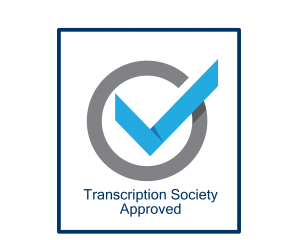DBS (Disclosure and Barring Service) checks and their predecessors are part of a long term government plan that has come into being over a period of time to ensure that terrible crimes such as the Soham murders can in theory be avoided and characters like Jimmy Savile can in future never be in a position to be able to inflict harm or damage on vulnerable people and children. It is a very worthy scheme, and one that is rolled out extensively across the country. It is particularly applicable to people who work with vulnerable people and children.
For the purposes of this article, we are concentrating on basic DBS checks, which is where a person’s details are run past a national database to check that they do not have any red flags in terms of criminal convictions or cautions outstanding. It does not include spent convictions.
There are basic and enhanced checks – the latter are very effective at revealing unsuitable people for working with children, and also for sensitive roles in government. As a junior football coach and sports club welfare officer I go through the enhanced DBS check process very regularly indeed!
DBS checked transcribers
We do get asked from time to time by institutions as to whether we are able to provide DBS checked transcribers in order to complete transcriptions for organisations such as charities and universities. The answer is yes we do, and we are able to ensure that only transcribers who have DBS checks are able to work on specific projects where this has been requested. We are conscious that some of our clients have obligations themselves only to work with suppliers who have been DBS checked, and this is particularly relevant for transcription and translation services.
However, as a more general discussion, what difference does it make in most cases for suppliers to be DBS checked?
Is your DBS check really necessary?
A DBS check indicates if someone has a criminal conviction or caution on their record, and if, for argument’s sake, we had a transcriber who had been convicted of drink driving and this showed up on their DBS check, would you, as a client, be unwilling to use their services? Or, would it make no difference whatsoever in terms of getting a transcription or translation completed in terms of their quality or skill as a transcriber or translator?
This is one of the problems with requesting DBS checks if the work being undertaken does not in practice really require a DBS check for the work to be undertaken as it makes no difference at all to the ability of an individual to complete a task.
Whilst DBS checks are incredibly useful for restricting access to children and vulnerable people, would it really make any difference if someone who had a criminal conviction was the person transcribing a recording? Whilst as far as we know we do not have any transcribers who have criminal convictions, it does beg the question as to whether it is slightly overzealous to ask for DBS checks for standard transcription or translation work, rather than looking at the skills and abilities someone may have.
Unlock – rehabilitating offenders
The Ten Percent Foundation is the charitable trust that TP Transcription Limited and University Transcriptions donate 10% of their annual net profits to every year. Over the years we have supported a charity called Unlock from time to time, which works to ensure that once offenders have served their time, they are rehabilitated back into society. One of the biggest hurdles offenders have is finding a job, because employers undertake DBS checks and then discover their conviction.
Whilst it is entirely understandable that an employer would want to run a background check and discover a criminal conviction, if the criminal conviction has no relevance whatsoever to the job they are going for, then it is usually counterproductive to society generally for a potential employee to be ruled out.
There are a lot of moral and ethical discussions around this and I can of course understand that in circumstances where someone has been convicted of theft and may well be handling money in a new job. An employer may want to know about convictions if relevant to the role.
Subcontracting
However, in circumstances where an organisation is subcontracting the work to another organisation to be completed for them, such as transcription or translation, then there is an argument that technically the organisation who are subcontracting out should not really be specifying that subcontractors or employees of the subcontracted organisation should be DBS checked. By doing so they are potentially restricting the prospects of ex-offenders who may now have been rehabilitated but are unable to get work if a client specifies that they must hold a clean record and be DBS checked.
Summary
Transcription or translation work is completed off site and away from any other person usually, which means that anyone completing it will not have contact with any other individuals other than the transcription management team and colleagues. The argument about being DBS checked to complete work is only really relevant for access to the content of the audio and video recordings, which are in the majority not sensitive content requiring a DBS check to access them. Obviously if audio recordings are of a sensitive subject matter or video recordings contain images of children then there is a clear case for requesting access only by DBS checked individuals, regardless of their level of expertise.
So, our thoughts on it are that whilst as a company we are more than happy to restrict work to transcribers and translators who have been DBS checked (and our managers & directors all hold clean DBS checks as well as enhanced BPSS checks) we ask our clients to consider carefully whether or not it is strictly necessary to have a DBS check undertaken for subcontracting work. The request can have unintended consequences for some..
If you have any thoughts or comments on this article please email us – jonathan@tptranscription.co.uk









